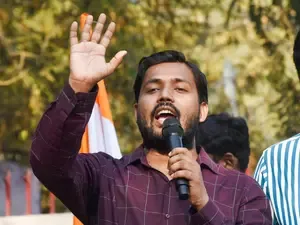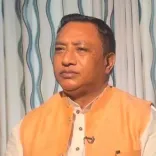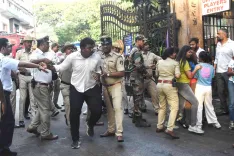Are We Losing Our Humanity? Khan Sir's Strong Reaction to Muzaffarpur Rape Case

Synopsis
In a heart-wrenching response to the Muzaffarpur rape case, Khan Sir challenges the moral fabric of society. His passionate remarks following the tragic death of an 11-year-old Dalit girl raise critical questions about empathy and justice, urging society to reflect on its values and the urgent need for systemic change.
Key Takeaways
- Khan Sir raises critical concerns about humanity in the wake of a tragic rape case.
- Calls for introspection within the legal community.
- Advocates for systemic reforms in medical protocols.
- Emphasizes the need for empathy and collective responsibility.
- Highlights the urgency of addressing rising crimes against women.
Patna, June 7 (NationPress) In a passionate response to the Muzaffarpur rape case, renowned educator and YouTuber Khan Sir on Saturday raised profound concerns regarding the essence of humanity within our society. His comments followed the heartbreaking demise of an 11-year-old Dalit girl, who was allegedly subjected to sexual assault and subsequently denied urgent medical attention, leading to her untimely death.
In an interview with IANS, Khan Sir stated, “This is more than just a criminal case; it is a challenge to our shared humanity.”
He described the horror of the situation, revealing that Arif Mohammad Khan (Bihar Governor), who visited him, was visibly disturbed. He recounted the Governor’s words: ‘How can someone lack such basic empathy that a child—a mere 11-year-old girl—limps away after being raped, yet the system fails to act?’ Despite being taken by ambulance, she was transferred between hospitals without receiving adequate care.
“Where are we heading as a society? We should feel the pain of others as if it were our own—this is the core of humanity. If we lose this connection, what distinguishes us from animals?” he remarked to IANS.
Khan Sir urged the legal community to reflect on their responsibilities.
“Why do some attorneys represent criminals—rapists, acid throwers, and murderers? I know several principled lawyers who refuse to defend individuals they believe are guilty. More should adopt this ethical stance. The solidarity and moral compass of the legal profession can create significant change.”
He extended his greetings for Bakra Eid, expressing admiration for Bihar Governor Arif Mohammad Khan, who honored him with a visit to his classroom.
“It is a privilege to have someone as thoughtful and knowledgeable as Arif Mohammad Khan serving as our Governor,” he expressed.
Recalling the visit, Khan Sir shared how the Governor was touched by the inclusive environment of his classroom.
“We have designated front-row seats for students with disabilities who receive free education, ensuring they have the best experience. The Governor was impressed and even showed interest in teaching a class here one day.”
Reflecting on this moment, Khan Sir added, “He said, ‘Suggest a topic and I will come to teach your students.’ It’s a tremendous honor, and we eagerly anticipate that day.”
When inquired about his personal life, following his recent marriage, he replied, “Everything is as normal as any other couple.”
Khan Sir also addressed the Bihar government’s decision to suspend the Medical Superintendent of Sri Krishna Medical College and Hospital in Muzaffarpur, where the girl allegedly did not receive timely treatment.
“While the suspension is a positive step, it is insufficient. We must establish clear protocols for critical situations. In cases of gunshot wounds or rape, treatment should never be delayed due to paperwork. She died in the ambulance, waiting for acceptance. This is not mere negligence—it’s criminal indifference.”
He advocated for systemic changes in hospital procedures.
“In major hospitals, there is typically a dedicated corridor for emergencies. Why doesn’t Bihar’s largest government hospital have this? We need a direct passage for life-threatening cases. A building alone does not constitute a hospital; it’s the system and intent within that truly matter.”
“In smaller towns or villages, some infrastructural shortcomings can be understood. But in Muzaffarpur? This is intolerable. It brings disgrace to the entire district and the state.”
Khan Sir concluded with a heartfelt appeal: “We must self-examine. These horrific crimes are on the rise. The time for silence is over. We must rise up—as citizens, as educators, as human beings. Because if we fail to act, we not only fail the victims but also the very notion of humanity itself.”





